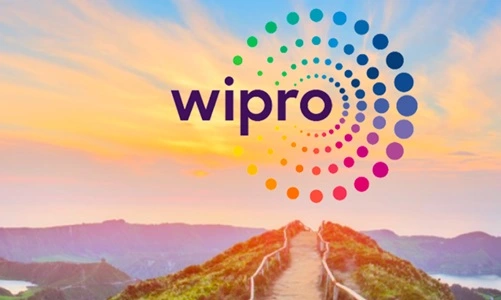Wipro Limited, a prominent player in the global IT services sector, has been a key contributor to digital transformation and technology consulting for decades. As we step into 2024, Wipro continues to expand its global footprint and diversify its service offerings. This article delves into a detailed SWOT analysis of Wipro, examining its strengths, weaknesses, opportunities, and threats, to provide insights into its current positioning and future prospects.
Current Overview of Wipro

Wipro, headquartered in Bangalore, India, operates in over 50 countries and employs more than 250,000 people. The company has made significant strides in areas such as cloud computing, cybersecurity, and artificial intelligence. In the fiscal year 2024, Wipro’s performance has been bolstered by several key partnerships and strategic initiatives, including collaborations with major US-based healthcare, telecom, and financial services companies. These engagements highlight Wipro’s capabilities in delivering scalable, AI-driven solutions across various sectors.
Wipro has also been recognized as a leader in multiple industry evaluations, including Forrester’s Wave for Application Modernization and IDC’s Blockchain Services Vendor Assessment. These accolades underscore Wipro’s continued innovation and market relevance.
Strengths
1. Global Presence and Brand Recognition: Wipro’s expansive global footprint and established brand provide a strong competitive edge. The company serves a diverse clientele across industries such as healthcare, finance, retail, and manufacturing, enabling it to leverage cross-industry insights and expertise.
2. Strong Innovation and R&D Capabilities: Wipro’s investment in research and development, particularly in emerging technologies like AI, machine learning, and blockchain, has positioned it as a leader in digital transformation. The company’s proprietary platforms and tools have been pivotal in driving innovation and enhancing client outcomes.
3. Strategic Partnerships and Alliances: Wipro’s strategic alliances with leading technology providers and its role in large-scale digital transformation projects underscore its capability to execute complex, multi-year engagements. These partnerships have not only strengthened Wipro’s service offerings but also expanded its market reach.
4. Diversified Service Portfolio: Wipro’s broad range of services, from IT consulting and business process services to cloud computing and cybersecurity, allows it to cater to a wide array of client needs, making it a one-stop solution provider.
Weaknesses
1. Dependence on Outsourcing: A significant portion of Wipro’s revenue comes from outsourcing contracts, which exposes the company to risks related to changing client preferences and market dynamics. This reliance can lead to vulnerability during economic downturns when clients might scale back on outsourcing.
2. Limited Brand Recognition Compared to Peers: While Wipro is a well-known name in the IT services industry, its brand recognition may not be as strong as some of its key competitors like Tata Consultancy Services (TCS) and Infosys. This can impact its ability to attract new clients, especially in markets where it is less established.
3. Slower Growth in Key Markets: Wipro’s growth in certain key markets has been slower compared to its peers. This could be due to a variety of factors including intense competition, client retention challenges, or internal operational inefficiencies.
Opportunities
1. Expansion in Emerging Technologies: The rapid advancement in technologies such as AI, blockchain, and cloud computing presents significant growth opportunities. Wipro can capitalize on these trends by developing innovative solutions and expanding its service offerings in these areas.
2. Increased Demand for Digital Transformation: As businesses across sectors continue to embrace digital transformation, there is a growing demand for IT services that can support this shift. Wipro’s expertise in digital transformation positions it well to capture new business opportunities in this space.
3. Strategic Acquisitions and Partnerships: By continuing to pursue strategic acquisitions and partnerships, Wipro can enhance its service capabilities, enter new markets, and strengthen its competitive position. These moves can also help the company address some of its existing weaknesses, such as limited brand recognition.
4. Sustainability and Green IT Solutions: With the increasing focus on sustainability, there is an opportunity for Wipro to develop and promote green IT solutions. This not only aligns with global environmental trends but also meets the growing demand from clients seeking sustainable business practices.
Threats
1. Intense Competition: The IT services industry is highly competitive, with numerous global and regional players vying for market share. This competition can lead to pricing pressures, reduced margins, and challenges in retaining clients.
2. Economic Uncertainty: Global economic instability, driven by factors such as inflation, geopolitical tensions, and market volatility, poses a threat to Wipro’s business. Economic downturns can lead to reduced client spending and delayed projects, affecting Wipro’s revenue and profitability.
3. Regulatory Challenges: Wipro operates in multiple countries, each with its own set of regulations. Navigating these regulatory landscapes, especially in areas such as data privacy and cybersecurity, can be challenging and costly.
4. Talent Retention: In the highly competitive tech industry, retaining top talent is a significant challenge. High attrition rates can lead to disruptions in project execution and increased recruitment costs.
Conclusion
Wipro stands as a robust player in the IT services industry with strong capabilities in innovation, global delivery, and strategic partnerships. However, it faces challenges related to its dependence on outsourcing and brand recognition. By leveraging emerging technologies, expanding its digital transformation services, and pursuing strategic acquisitions, Wipro can strengthen its market position. Nevertheless, the company must remain vigilant to external threats such as intense competition and economic uncertainty, which could impact its long-term growth and sustainability.
In summary, Wipro’s ability to navigate these challenges while capitalizing on its strengths and opportunities will be crucial in maintaining its competitive edge in 2024 and beyond.